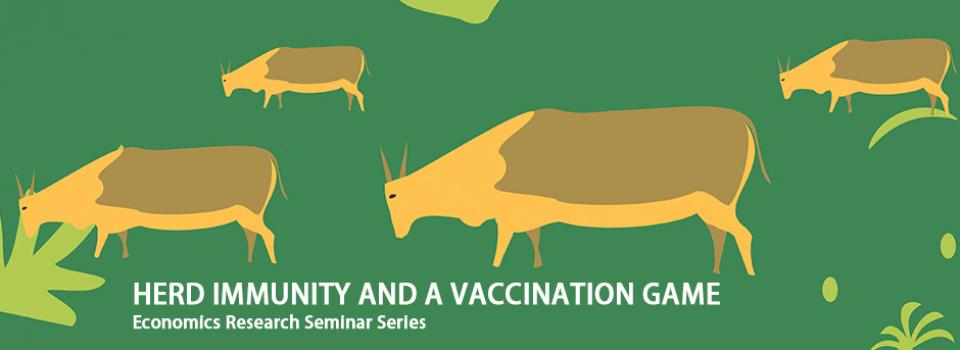
Would the affected community in West Africa voluntarily obtain herd immunity if a cure for Ebola were invented? This paper theoretically and experimentally investigates people’s vaccination choices in the context of a nonlinear public good game. We first consider the standard SIR model (Kermack and McKendrick, 1927) to capture the dynamic process of contagion and show that the long-run infection probability decreases concavely as vaccination coverage rises, with the probability eventually vanishing when herd immunity is obtained. The nonlinear nature of the externality dramatically changes the social planner’s problem such that it is socially optimal to eliminate an epidemic by obtaining herd immunity. We then consider an individual’s strategic vaccination choice problem. A “vaccination game” is defined in which costly commitments (vaccination) are required of a fraction of the population to reach the critical level needed for herd immunity, without which defectors are punished by the natural contagion of epidemics. Our game-theoretic approach to herd immunity reveals an elimination equilibrium in immunization behavior for which the orthodox principle of positive externalities fails to account. As a result, the socially optimal outcome can be achieved through voluntary vaccination. Our experimental implementation of a vaccination game in a controlled laboratory setting provides strong support for the major theoretical predictions.


